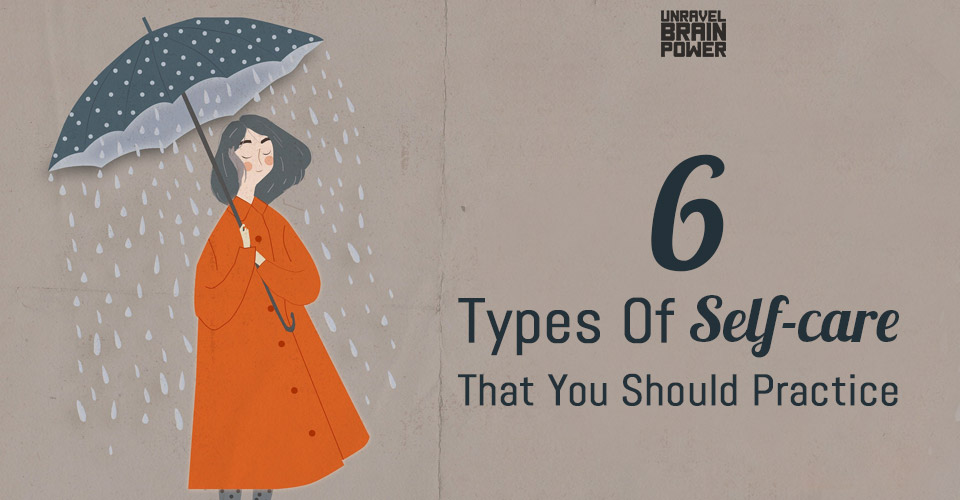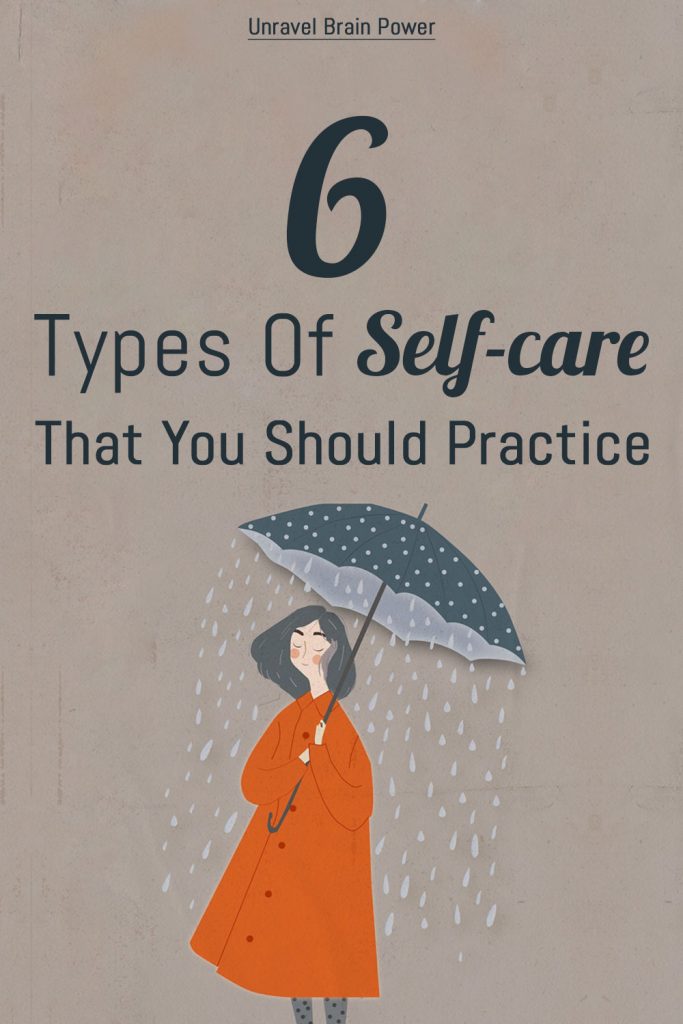
Self-care is the prerequisite to a healthy and happy life. When you care for yourself, you are able to care for other people who are around you as well. With self-care, you are able to recognize whenever you are stressed or anxious and take part in subsequent stress-busting activities.
What are the types of self-care?
Self-care involves caring about yourself as a whole person in your entirety- you have to care about yourself completely physically, mentally, emotionally, and in all other ways possible. There are various forms of self-care. It is rightly said that self-care is a multidimensional, multifaceted process. If you are someone who is facing issues in your professional or personal life and are feeling low because of this, self-care is the way to go. Remember, self-care is not a luxury to have, rather it is a necessity. If you feel like you have no time for practicing self-care, you must remind yourself that without taking care of yourself, you will be more prone to stressors and frequently find yourself in situations where things get out of hand easily.
We have six types of self-care broadly categorized for you. Keep in mind that you have to practice self-care in all forms in order to be completely happy and successful in your life.
Types Of Self-care
1. Physical Self-Care
This involves taking part in activities that improve your physical health and well-being. Improving your stamina and endurance is necessary because only then you will be proactive in your personal life and productive at your workplace as well. There is a definitive connection between your body and mind, therefore for your mental well-being, you have to make sure that you are physically well too.
Examples of physical self-care involve taking the stairs instead of the elevator at the office, exercising regularly, getting sufficient sleep during the night, taking a walk during work breaks, staying hydrated, having a healthy diet, etc.
2. Mental Self-Care
Taking care of your mind and intellect is the prerequisite to mental self-care. If you are fit mentally, only then your body will have the energy to get up and work. Keeping your mind sharp and filling your mind with good things is mental self-care in a nutshell for you.
Examples of taking care of yourself mentally involve reading a book, solving a puzzle, watching new movies to fuel your mind, and so on.
3. Emotional Self-Care
This involves partaking in activities that help you connect with other people’s emotional responses and stimuli, process new information, and reflect on the emotional responses that you have. When you face uncomfortable situations in life, you have to stay emotionally prepared and possess sufficient emotional strength to deal with the matter.
Examples of emotional self-care involve going for a visit to the therapist on a regular basis, maintaining a journal where you write down your experiences in day-to-day life and your emotional reactions to them, writing prose or poetry, making new artworks, or creating new music, that is, staying engaged on a creative level.
4. Spiritual Self-Care
Taking care of yourself spiritually is much needed for your growth on a personal level. Thinking and partaking in activities to nurture your spirit and thinking bigger persistently is the key to success. For some people, being religious in beliefs and activities is spirituality. So, it can be said that religion and spirituality overlap at times for certain people.
Examples of spiritual self-care include practicing meditation, yoga, going to religious places, spending time in the lap of nature, taking the time to reflect on yourself, and more.
5. Social Self-Care
Social self-care is all about developing and nurturing your relationship with other people who coexist in society with you. When you build and grow relationships, you learn a lot about life, about the perspectives that people around you have, and gain considerable knowledge about different spheres of life.
Examples of social self-care involve regularly inquiring about the well-being of your family, checking up on a friend, doing volunteer work, and helping the needy people around you in society, as much as you can.
6. Practical Self-Care
Doing tasks that fulfill your practical needs in life are the most important, which is why even though practical self-care is listed at the bottom, it is sometimes the most important one. You have to take care of your practical needs in order to avoid undesirable situations in the future.
Examples of practical self-care include cleaning out your closet regularly, making a budget for the upcoming month, or taking professional training for your career expansion in the future.
When you want progress to happen in your life, you must definitely practice self-care, make it a conscious choice on your part and develop it into a healthy habit. Never say, “No one loves me,” because you do love and care for yourself.
Read more
Pin this for later






